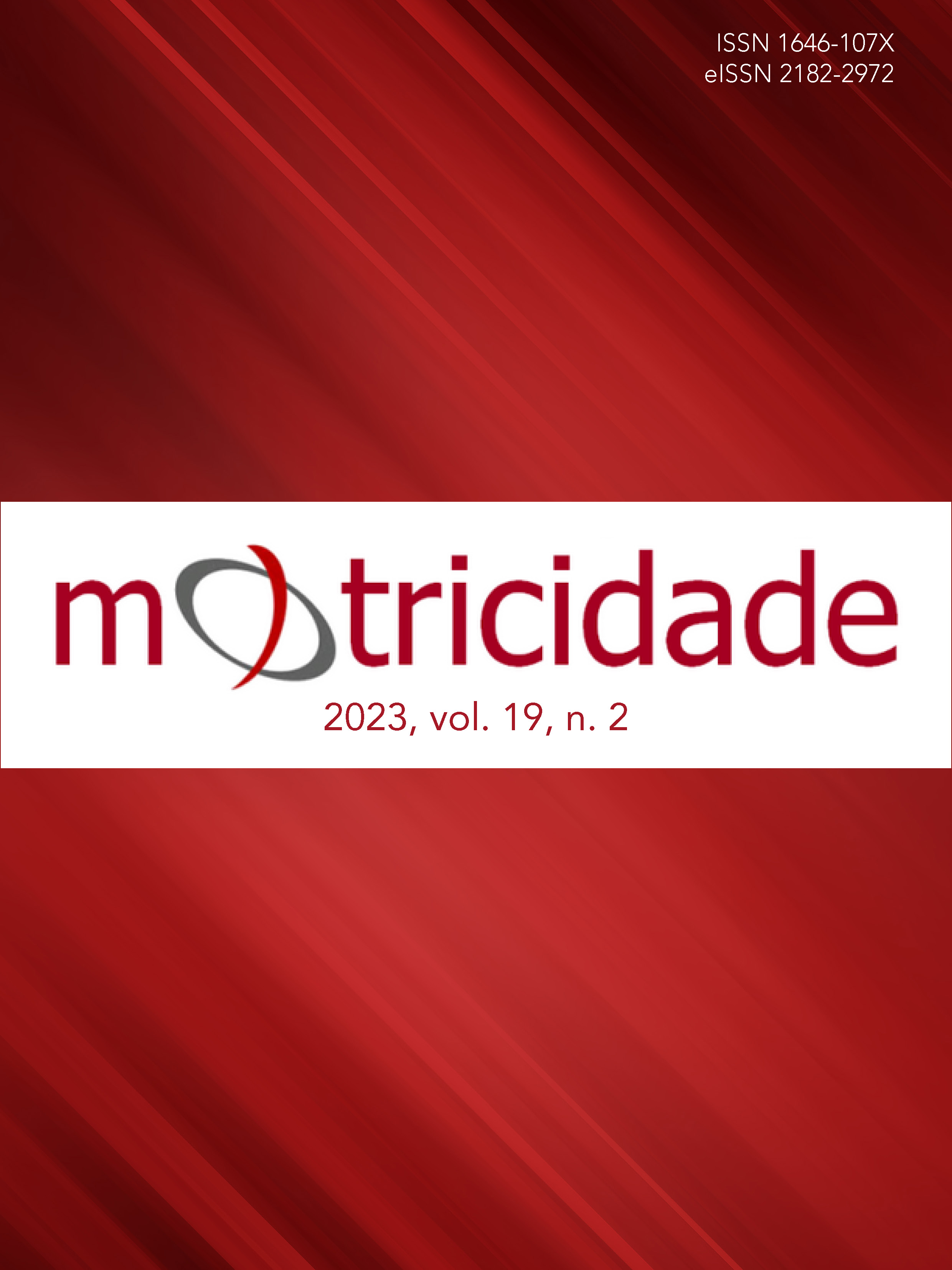Short-term Static Stretching does not affect balance or strength training performance in young adults
DOI:
https://doi.org/10.6063/motricidade.28153Keywords:
Strength training, Static stretching, BalanceAbstract
There is insufficient evidence about the acute effects of short-term static stretching on body balance and training volume in strength training. Thus, the objective of the present study was to investigate the acute effect of different static stretching times on the performance and balance of physically active young people during strength training. Ten physically active male subjects, aged 21.5 ± 2.12 years old, participated in the experiment, which took place over seven sessions. In the first three sessions, familiarization, test and retest of 10 maximum repetitions and balance tests were performed, through the Star Excursion Balance Test. From the 4th to the 7th session, stretching of 0, 5, 10 or 15 seconds was used, randomly. The results showed that there were no statistically significant differences between the stretching volumes. It is concluded that there was no reduction in the number of repetitions with the load of 10RM and the distances of the steps in the balance test when preceded by static stretching. Static stretching at moderate intensity and duration of up to 15 seconds did not affect the performance or the balance of physically active young people. Furthermore, there is no difference between stretching 5, 10 or 15 seconds for the mentioned acute strength and balance responses.
Downloads
Published
Issue
Section
License
The authors of submitted manuscripts must transfer the full copyright to Journal Motricidade / Sílabas Didáticas Editions. Granting copyright permission allows the publication and dissemination of the article in printed or electronic formats, and copyrights start at the moment the manuscript is accepted for publication. It also allows Journal Motricidade to use and commercialise the article in terms of licensing, lending or selling its content to indexation/abstracts databases and other entities.
According to the terms of the Creative Commons licence, authors may reproduce a reasonable number of copies for personal or professional purposes, but without any economic gain. SHERPA/RoMEO allows authors to post a final digital copy (post-printing version) of the article on their websites or on their institutions' scientific repository.


